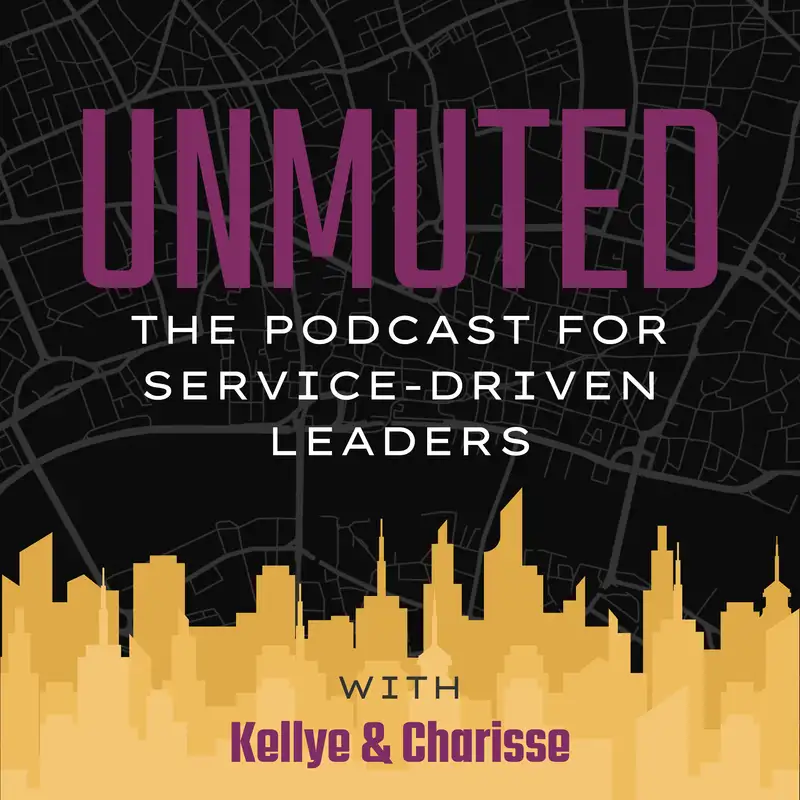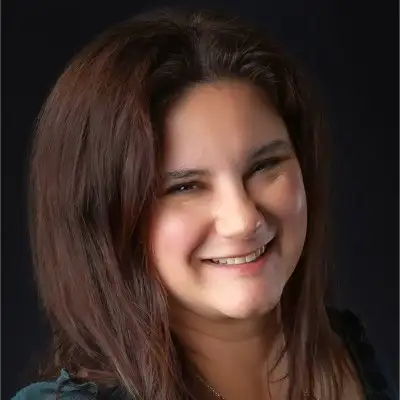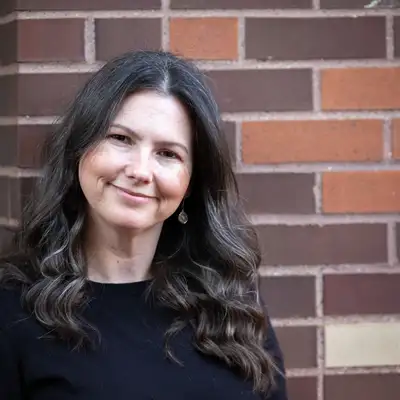Kellye Mazzoli (00:34)
Welcome back to Unmuted, the podcast for service-driven leaders. Today, we're talking about emotions and unhealthy actions and how we reclaim control and replace those actions with healthier choices. I'm Kellye Mazzoli.
Charisse Deschenes (00:50)
I'm Charisse Deschenes Today's episode might hit close to home. We're addressing what it's like when we eat our emotions, but not just in the cookies and cream sense. We're talking about the real ways we avoid, suppress, and sabotage when our emotions feel big or too big or too dangerous to face.
Kellye Mazzoli (01:10)
This is about what happens when our pain goes underground, when we keep pushing through as leaders, but we're quietly unraveling. And here is the truth. Most leaders don't have a safe space to deal with what's underneath. So we learn to cope in ways that feel private, but they're actually eroding us over time.
Charisse Deschenes (01:31)
So today we're unpacking how emotional sabotage shows up and how our brains are wired to protect us from healing and what we can do personally and with the help of coaches to finally move from survival and into healing.
Kellye Mazzoli (01:46)
So let's start with this idea of quote, eating your emotions. People use the phrase lightly like stress eating pizza or maybe crying into a pint of ice cream. But the truth, the deeper truth is that emotional eating is actually symbolic and it's about how we avoid feeling what we really feel.
Charisse Deschenes (02:10)
Yeah, it's not always about food. Like for me, it was scrolling late at night when I felt anxious and I couldn't sleep. I would numb out at night, you know, and wake up the next morning feeling totally exhausted. And then I was worn out. I kind of went, you know, I avoid going to the gym. I'd kind of walk through my day eating convenience meals. And I felt like a zombie. Not because I didn't care.
but because I was overwhelmed and I didn't really want to feel what was building up inside of me, I was making myself really tired and I didn't have the capacity to make positive change. And I felt like I was existing and not really living.
Kellye Mazzoli (02:53)
Yeah, for me, it really presented in the form of over-functioning. Like I'd pour myself into work. I was always helping. I was always busy because as long as I was needed, I didn't have to sit with the fact that I was feeling maybe a little burnout, a little tired and a little scared. And it also made it look like I was really thriving, but...
In all actuality, I was just avoiding my own needs.
Charisse Deschenes (03:25)
should we dive into maybe why your brain sabotages you a little bit ⁓ as it thinks it's kind of protecting you?
Kellye Mazzoli (03:30)
Yeah!
Yeah, let's dig into the neuroscience here. You know, this is something that I've actually studied a lot. And whenever you're talking about your brain's primary job, contrary to our belief, it really isn't there to make you happy. It's actually there to keep you safe. safety from a neurological perspective actually means familiarity, right? It's predictable.
Charisse Deschenes (03:54)
Yeah.
So even when it's familiar, it's harming you.
Kellye Mazzoli (04:00)
Yeah, so even if what's familiar is harming you, that's exactly what your body has learned, right? That stress, people pleasing, emotional suppression, or even like a physical exhaustion, if that's your quote normal, then the brain will protect that normal at all cost. So when you try to make a change, let's say you speak up in a meeting or you try to set a boundary,
maybe you apply for a new role, like your brain is constantly scanning for threat, right? And if it links that action with rejection, shame, or maybe some past trauma, it will actually trigger a defense mechanism. And that defense mechanism looks like fatigue, it looks like procrastination, it looks like self-doubt.
And that translates, because nobody likes to fill those things, it translates into us doing numbing behaviors, like maybe some wine after a long day, or Netflix, or maybe you like candy and sugar. For me personally, it was chips and queso. So I like the crunch of the chips and I like the warm cheesy sauce. And that's the comfort foods, right?
Also, one other way that it might present if it's triggering a defense mechanism is maybe even physical illness.
Charisse Deschenes (05:23)
Yeah, it's wild how you say that our bodies become this vehicle of avoidance. I used to think I was just being maybe lazier. I was so tired, but I was actually kind of afraid. And I think my brain was saying, you grow too big or it won't be safe for you if you do that. Or if you slow down, you'll feel, you know, like things that hurt in a way. So I see what you're saying.
Kellye Mazzoli (05:45)
Yeah.
Yeah, right, right. And
that's the thing. It's like, it's what we mean when we say that your brain is sabotaging you. It's funny because it's doing it to protect you. It's really a brilliant unconscious system just constantly working on your behalf. But here's the thing, healing will start when you start to bring that system of safety seeking, that regular just unconscious
happening that's going on whenever you bring that into conscious awareness, that's when we can really start healing.
Charisse Deschenes (06:21)
Yeah. Well, I'm just thinking here's something else I've noticed and it may be a bit more subtle. You know, we've talked before about how many of us and even in this episode, how people bond, you know, many of us bond and we use our coping behaviors to do so. Like the proverbial, like you said, wine and chocolate. We bring each other treats after a hard day. We pour a glass of wine and we sit down and we call it self care, self care, right? ⁓
Kellye Mazzoli (06:48)
Yeah,
I mean, even the donuts, the donuts at the meeting. Yeah.
Charisse Deschenes (06:48)
It kind of becomes, yeah,
donuts, the pizza, all of it, it becomes this ritual of emotional bypass. And on the surface, it feels really supportive in the time, but you're struggling. And you're like saying, let's let's numb this together. It creates this togetherness and comforting, but it's really not actually a healing. It's harming. know I've
Kellye Mazzoli (06:54)
Mm-hmm.
Hmm.
Charisse Deschenes (07:13)
been in that situation many times in my career.
Kellye Mazzoli (07:17)
Yeah, yeah. Those things that you're talking about are really a quiet agreement. That's like, quote, we're broken together. So we don't have to change. Because if you're numbing out, you're not looking to change. You're not looking to do something different. You're looking to keep things familiar. So I think it soothes the pain of being alone in our struggle. Having somebody to do this together, having the group.
sort of partake in the donuts and the wine and the chocolate, but it also prolongs in the suffering.
It reinforces the idea that we can't feel better and we can only bond over the fact that we don't feel good. So I think we sometimes, at least this is in my experience, I have mistaken validation for transformation, right? Right? Like it's when you find others who are doing the same thing and you're like, that's validation. But instead, what I should be seeking is some transformation, some change.
Charisse Deschenes (08:07)
Yeah, yeah.
Kellye Mazzoli (08:19)
And so yeah, there's some power in knowing you're not alone, right? We love to talk about connection and we love to talk about community and we want you to know that you're not alone. But when our connection is built entirely on shared avoidance, we actually become co-conspirators in keeping each other stuck.
Charisse Deschenes (08:38)
Yeah, and especially, you know, in our work being the type of people that want to collaborate and, you know, talk about community for sure. It feels familiar. So what would it look like to gather over maybe truth instead? What if we said, it's not okay, and I want to move through this instead of masking it. You know, that's a shift. That's where kind of healing begins, right?
Kellye Mazzoli (09:02)
Mm-hmm. Yeah, I really, really love that. Like doing something completely different, saying, I'm not okay. I wanna move through this. Let's not mask it, let's shift it. So maybe now it might be good to recognize the sabotage loop that we may find ourselves in when we're quote, eating our emotions and the way that that might show up. So.
What it might look like is delaying your important tasks, skipping things that bring you joy. You might always be too busy, right, to take care of yourself. You might be getting sick every time you're on the edge of a breakthrough. And you might be saying yes to everything except what matters to you.
Charisse Deschenes (09:37)
Yes. Yes. Yes.
Mm-hmm.
Yes, yes, I've been there. I've absolutely been there. Those are really good ways to measure that, think. And you'll notice that there's usually a familiar voice in your head, you know, like whispering things like, it's not that important. You're just tired. Scrolling a little longer won't hurt. You can't let them down. So you have to be there. These sound like rational thoughts, but they're your brain's way of like really
dodging the risk of change.
Kellye Mazzoli (10:20)
Yeah.
Charisse Deschenes (10:20)
So,
you know, when you think about it too, like, what can we do, you know? Maybe slowing down and noticing the pattern first, bringing awareness to it. Asking, what feeling am I avoiding right now? What would I need to feel safe enough to face it?
Kellye Mazzoli (10:35)
Yeah, yeah, number one, the first thing you can do is really notice that pattern. So like I said, if you bring awareness to it by asking, what am I feeling right now or what feeling am I avoiding right now? That's a really powerful question if you will actually sit down and ask yourself that question. What is the feeling? What is the emotion I'm avoiding right now? And then the next piece to that then is you have to pause the pattern. You don't force like a really big change. You just wanna try to interrupt it.
because you're teaching your brain that you can interrupt it and be okay. I.e. you might put down the glass of wine. You might step out instead of pressing play on Netflix. You might journal before you say yes to make sure it's actually a yes. You wanna give your nervous system a cue that you're safe whenever you're still for a moment.
At least for me, that's what I needed, right? I needed a new cue. I needed to know that even if I was a little still and I took a breath and I did these other things, I had to tell my brain, huh, yes, I can do this other thing and no, I'm not hurt.
Charisse Deschenes (11:48)
Yeah, and then, and regulate. Breath work is so important. Maybe movement, you know, cold water plunging is one way and just grounding yourself. There are so many ways that you can do that. you know, all of these bring your body back online in a way that you, your brain can calm down. ⁓
One of my go-to's is the deep breathing in the sauna that we've talked about before, after I take a long swim and just sitting there and breathing in, just mindfully reconnecting with myself. I let my body just kind of settle and all I'm listening for is my breath and trying to concentrate. It feels so amazing to connect, reconnect with me in that particular way.
Kellye Mazzoli (12:30)
Yes, regulation is really important. And I love that you brought up cold plunge, but I want to offer, I'm not a cold plunger. So I just want to offer the audience, like you don't have to do a cold plunge to get the same effect. You can, that's the whole splashing cold water on your face, I think can also be helpful for somebody who isn't willing to take the plunge. So even just.
Charisse Deschenes (12:39)
Ha ha!
All right, I respect that.
Kellye Mazzoli (12:56)
Just a little cold water.
You know what's really funny is that I honestly, even if I just go and I wash my hands and I have like these really good smelling soaps that I enjoy and ⁓ maybe you have a lotion that you have with you at your desk at work, but even just doing that and just having some aroma therapy at a moment just to smell something nice, just a hand wash, right? Or some cold water on the face. Although I know if you wear makeup, you don't necessarily wanna have it all.
running down your face, but yeah. Anyway, yeah, yeah. But you know, it's really important. And I just wanted to know, like when you're regulated, you can respond from your wisdom instead of reacting from fear, which I think is really that whenever your brain is thinking it's keeping you safe, those just familiar actions that you're taking without really thinking is really just a reaction and they come from that fear.
Charisse Deschenes (13:26)
Maybe after work, yeah.
Kellye Mazzoli (13:53)
of needing the safety. So when you pause and you give yourself this new cue by breathing with a little cold water splash, doing the sauna, doing some breath work, maybe even moving a little bit, like taking a walk, those new cues allow you to respond more from your own wisdom. So, you know, and I'll add to, I think what's a good thing to say here is this is where coaching can actually be a real game changer.
And as an executive coach for city managers, I help leaders notice when they're performing instead of processing. I am there to help sort of point that out and to help bring awareness to it. And as you build the awareness around those choices, you're taking the fear out and you're stopping the pattern. And that helps shift you back into agency. So I just wanted to throw that in there.
from the executive coaching side.
Charisse Deschenes (14:49)
Yeah, and as a health coach, I help people tune back into their body's wisdom. We look at how our habits reflect deeper stories, and we rebuild from the inside out, not just the goals, but with compassion for ourselves. It's not about shame, it's about curiosity and support.
Kellye Mazzoli (15:07)
Yes, and having someone witness your patterns, right? Without judgment, that can be super, super powerful. you know, I just want to offer, you don't have to figure this out alone. You have me and Charisse, and I'm so glad that you're here with us.
Charisse Deschenes (15:11)
Mm-hmm.
Yeah, yeah. So how about an unmuted challenge for the week, Kellye?
Kellye Mazzoli (15:30)
What's this unmuted challenge this
week? What are we doing?
Charisse Deschenes (15:34)
So just thinking, maybe people can step into the thoughts. Think of one way you typically numb. Maybe it's the wine, the TV, food. You keep busy. You gossip. You over-care-take for others. But you do not focus on yourself in that way. So taking a pause the next time you feel that urge and asking yourself, what do I actually need right now?
and then give yourself a moment of presence, a walk maybe, a breath work, doing your journaling, music, silence, just taking that moment in time for yourself.
Kellye Mazzoli (16:12)
And if you've been holding your emotional life in silence, thinking that no one could possibly understand what you're going through, let us just say that we see you. We get it. You are not broken. You're just buried beneath patterns that once served you, but maybe they no longer do.
Charisse Deschenes (16:31)
You don't have to keep doing life muted. You deserve a new kind of support and one that holds the space for you, the whole you. Whether it, you know, we're messy, we're brilliant, we're healing, we're in the works.
Kellye Mazzoli (16:46)
Absolutely. Thank you so much for joining us for this conversation. If you're ready to take the next step to unlearn sabotage and build a new rhythm, don't worry, we're here to help.
Charisse Deschenes (16:56)
Until next time, stay curious, stay grounded, and stay unmuted.


